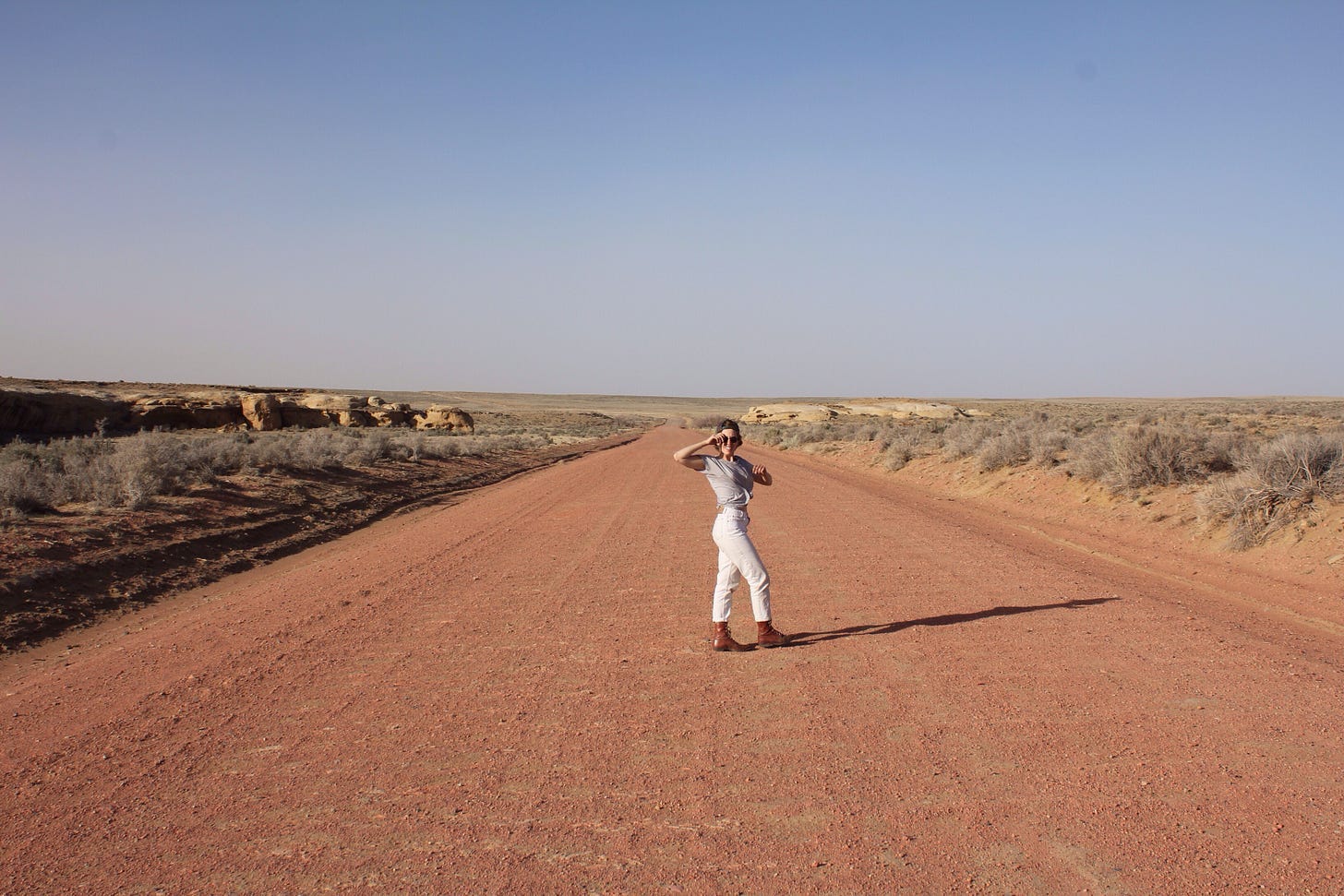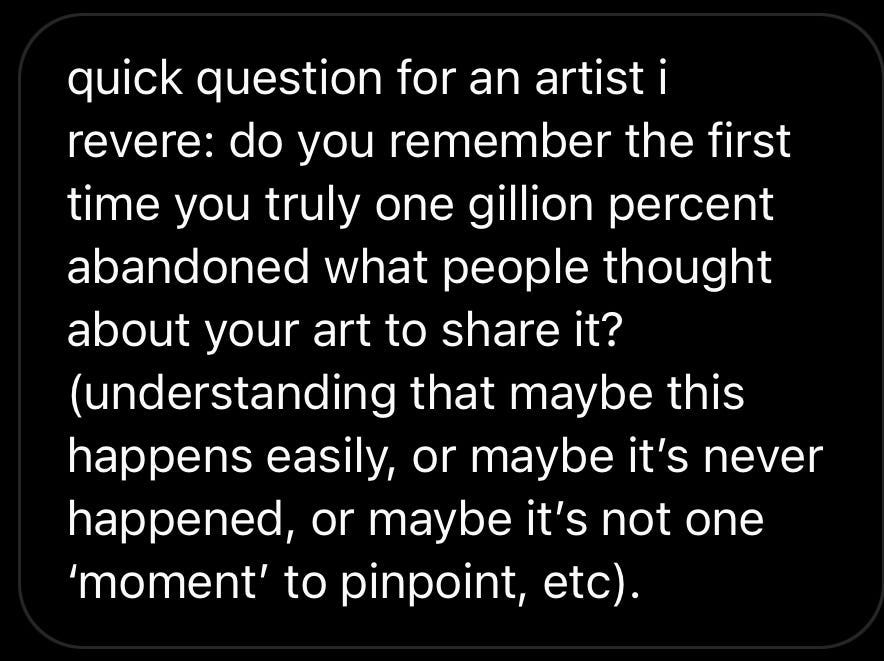Today’s newsletter is about my high tolerance for pain. It also tackles a reader-submitted question that I often receive: Where do I get the nerve to make my work and the guts to share it.
“One of the lessons that Fawn teaches us is that doubt and fear guard the path of desire. Seen in this light, then we can try to reframe fear and doubt, accepting that these feelings no longer exist as our warning to leave, but rather, the signpost affirming we are going the right direction.” -Kathryn Miller (Inner Vision, July 11th, 2022)
Lately, I’ve been tripping. I’m stoned on intrusive self-inquiries with a side of skepticism. It’s been enough to make me want to change the channel, or at the very least my appearance. I drove to Target last week and spent $75 on products to box-dye my hair. I returned everything five minutes later.
What does it feel like to be on a leaf? What does it take to talk with the trees? What is it like to believe that the universe wouldn’t throw something at me I couldn’t handle?
I’m meant to leave with T. for Big Sur within the hour. I should be packing, but I’m not. Instead, I’m fixated on an interaction that’s led me to a sequence of reflections. Writing from bed, I’ve unearthed enough reasons to withhold. I’ve decided not to go anymore. Like shifting clouds, I change shape regularly and my mind follows.
Often, as I’m losing my grip, T. asks me to consider the following: What if there is nothing wrong? He doesn’t understand that I’ve been busy throwing a big disbelief party. It’s ongoing, the only invitee is me, and I pass the time sucking air out of all the balloons while a record loops.
The theme of the party is: I don’t believe I am lovable, and my capacity to believe in other people while they attempt to love me is very limited.
To take T.'s perspective into serious consideration requires me to relieve myself from the role as party host and enter the warm bath of believing I am loved. It requires me to believe in someone’s conviction for loving me – not because they said so, but because I simply deserve to believe it’s possible, regardless of the conditions. Have I really spent all of my adult life side-eyeing my relationships and suspended in disbelief, just to give it up now?
“It is the elaborate ways in which we turn away from pain through psychological defenses that leads to the increase and elaboration of pain.” -Delia Kostner (quoted from Jessica Dore’s Offering: August 6th 2022)
I’m trying to understand the chasm between the fear I carry in romance, and the lack of fear I have around sharing my work — a literal extension of myself — publicly. I’ve been asked how I dial in the right combination of courage and shamelessness in order to promote what I do. I’ve been asked how I maintain the confidence and conviction to keep showing up, even when the feedback isn’t great, or when there’s no feedback at all.
Just yesterday as I was editing this piece, a message came through on my Instagram:
It’s a little maudlin, but when I read questions like this, I always come back to the same thing: heartbreak.
I once caught the tail end of an Oscars speech by Meryl Streep, where she quoted the late Carrie Fisher, who’d said, “Take your broken heart and make it into art”. At first I took this advice to mean I should motivate myself with my pain and use it as inspiration. Let the darkness lead to something wild, excavate the shards strewn about, and build with them.
I’ve been working as an artist and engaging with a wide audience long enough to identify my ability to ignore everybody and simply keep going. Not caring what other people think and not linking my creativity to my being liked — these are non-negotiables. I think what gets between most people and their embrace of radical self-expression is the fear of judgment or rejection.
While my striding towards indifference hasn’t been linear (being an arguably impossible destination, anyhow), heartbreak stemming from a rejection of my art never concerned me.
I produce my craft and share so earnestly largely due to the absence of my father. No judgment or rejection from my audience will ever touch the heartbreak of that deficiency — which is, in a sense, liberating. I am grateful for the current of suffering that courses through me, because of his conscious decision to abandon me as his daughter. It confounds and plagues me; there is no other way to hold it. But this ache is also what frees me. His unwillingness to extend love is painful enough that it forces perspective.
Keep reading with a 7-day free trial
Subscribe to Unsupervised to keep reading this post and get 7 days of free access to the full post archives.







